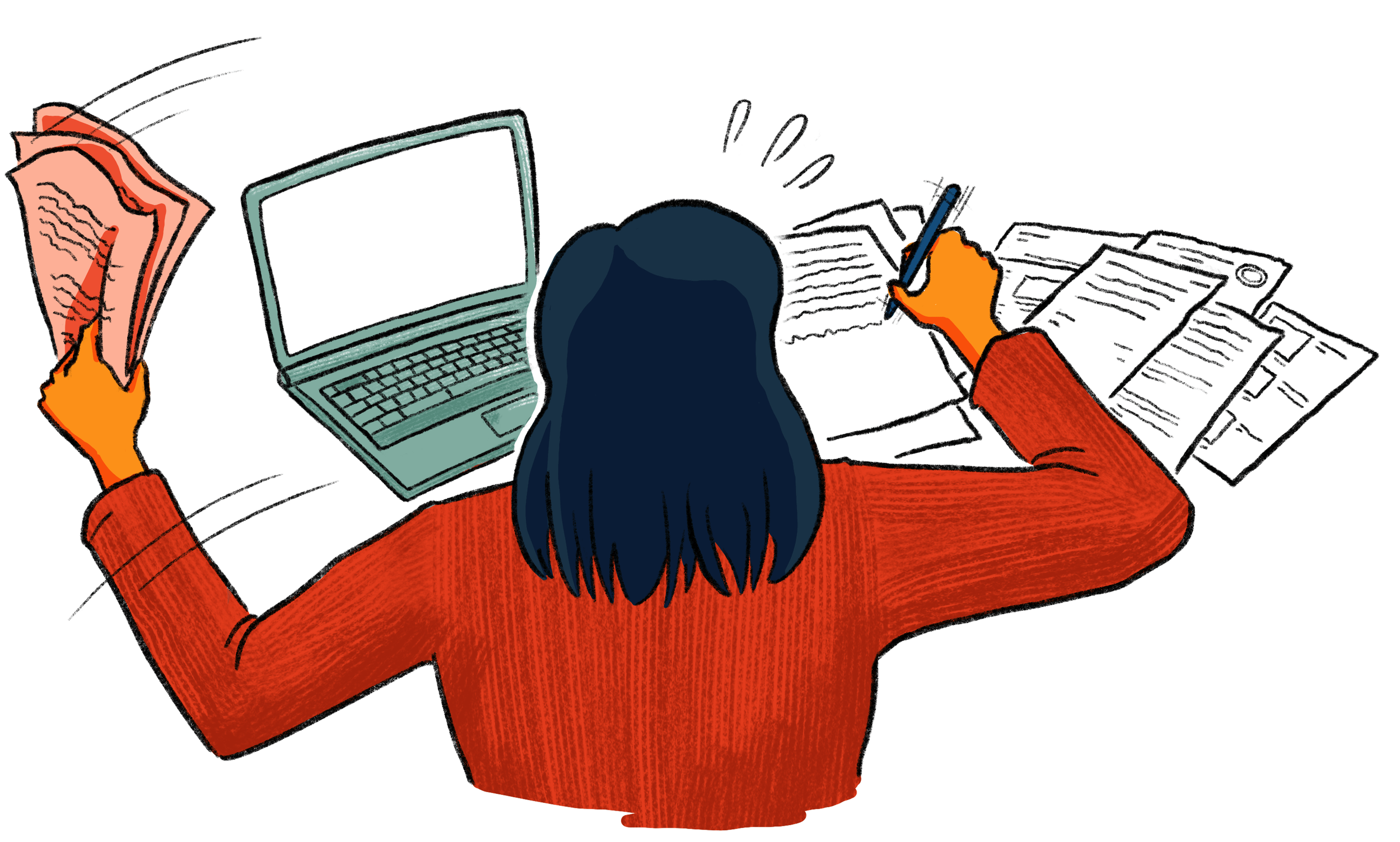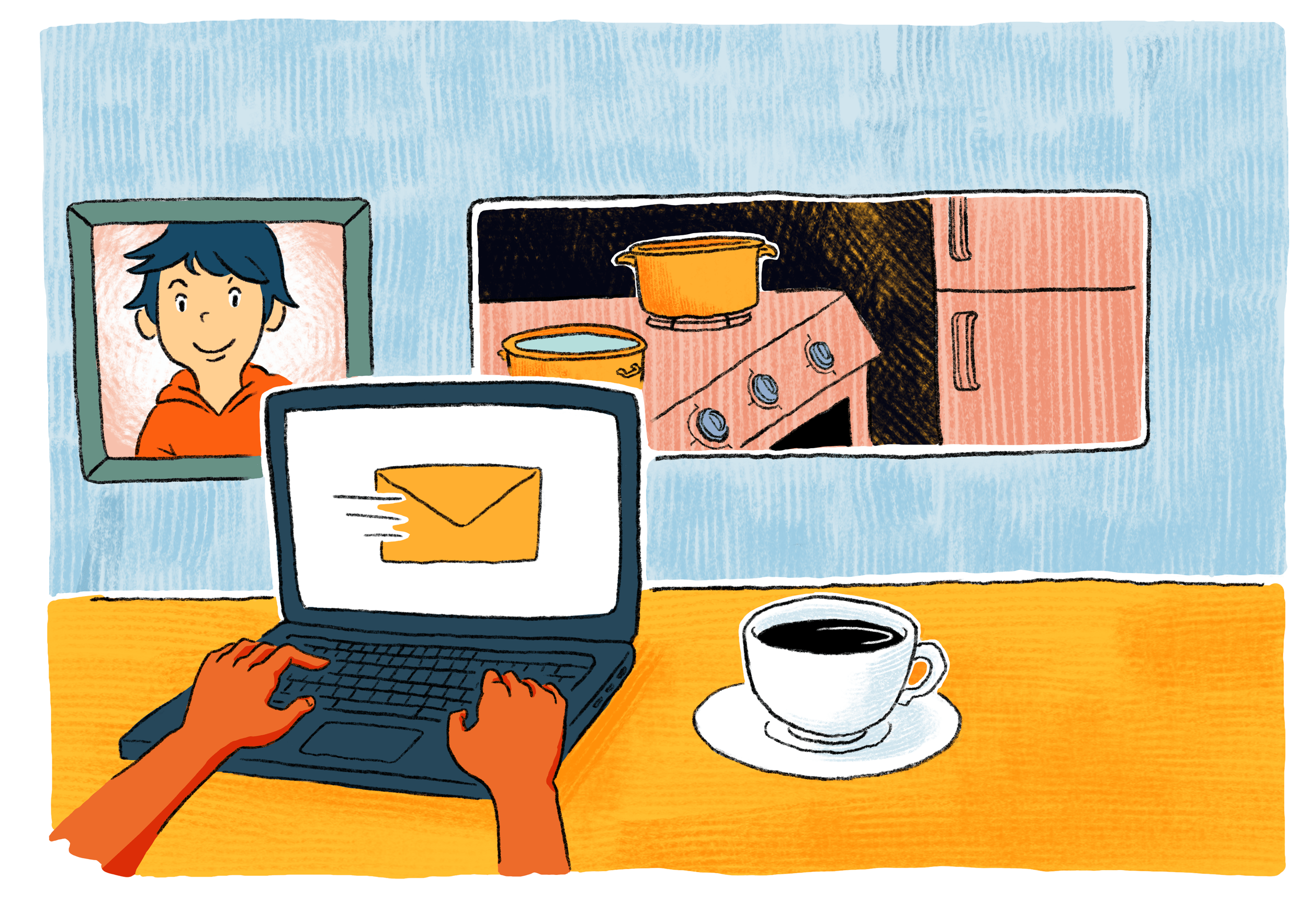Citizen from Hell
Brit Ross Winthereik
It was late afternoon and one of those days that I had taken off work to do family stuff. I could hear my husband scrambling around with pans in the kitchen, preparing our evening meal, while I was busy in front of the computer. Back then ‘doing family’ stuff did not imply spending time with the children, cooking, or doing the laundry. It meant calling people, identify yourself digitally, sitting in online counselling or ‘network meetings’, filling in forms, figuring out rights, and dealing with wrongs.
Me in front of the computer this afternoon, a moment in a longer process of figuring out what the welfare system knows, what it ignores, and what I need to provide in terms of data for my child to become eligible for special education. The computer is an important element in the picture, which is also the symbol of a retreating welfare state, but the computer is not the only key element if we are to understand digital welfare and its (in)justice.
In the ethnography that I narrate forth here, there is an invisible context for my engagement with the state. The data are not present in the picture, and yet they preempt every interaction with the authorities. The child in need of special education is there as data, present as he is in several databases, but what it takes to connect this data up as evidence and make it ‘actionable’ for me, for us, as citizens, is unclear. In combination, added up, the data could speak very vividly about the difficulties, vulnerabilities, and challenges that excludes this child from conventional learning and schooling. If it could speak, if it could be read in context and in consort. At present, though, the data does not add up, or speak, it is not evidence of anything else than years of interaction.
And so, my work on this late afternoon is to make links, to participate, to infrastructure welfare. The databases are for different purposes than to serve me and the data do not add up. The databases do not see ‘a child’, they see data produced at other sites by other professions. Thus, the child is not a child, or it is a multiple child, not seen by the authorities as in need of special education. “We are at once heterogeneous and we have experience of a self, unified only through action”, says Susan Leigh Star, yet it is hard to tell where ‘the action’ is in this situation. To what extent ‘action’ is unifying the multiple data-selves of the child. And multiple selves are what there is, the child in different databases (school, municipality, health care system), the selves of a citizen-user (a relative, a researcher, a welfare recipient) in her attempt at linking data to create a standard image of a child that might fit the standard welfare recipient. But the situation goes out of hand. There is multiplicity, a fit can’t be made.
A call from the kitchen: Dinner is ready. She swiftly ends her email to the authorities “Greetings, Citizen from Hell”, which becomes a temporary stabilization, a point in time at which she can later look back for reconfirmation that selves are extensive. Just like the selves of the child on whose behalf she acts, her self is extensive. With Citizen from Hell she has added a self to which the system is blind, an as-yet unlabeled (Star, 1991: 37). A requirement for justice as well as a refusal to ‘pass’ or become pure in the eyes of the digitalized state.
The consenting ‘I’ has already had much stolen before entering into the informed consent ritual. Centering the lived material body, which is itself layered entanglements aptly theorized by scholars in queer, trans, disability, and Black studies, might trouble some of the analytics that lie at the heart of data stories and imaginaries: consent, data ownership, surveillance, privacy, visibility and invisibility, harms, and benefits. Close attention to these kinds of ‘small,’ complex, and shifting entanglements, then, might helpfully denaturalize much that is taken for granted in conversations about data justice.
References
Star, S. L. (1990). Power, technology and the phenomenology of conventions: on being allergic to onions. The Sociological Review, 38(1_suppl), 26-56.



